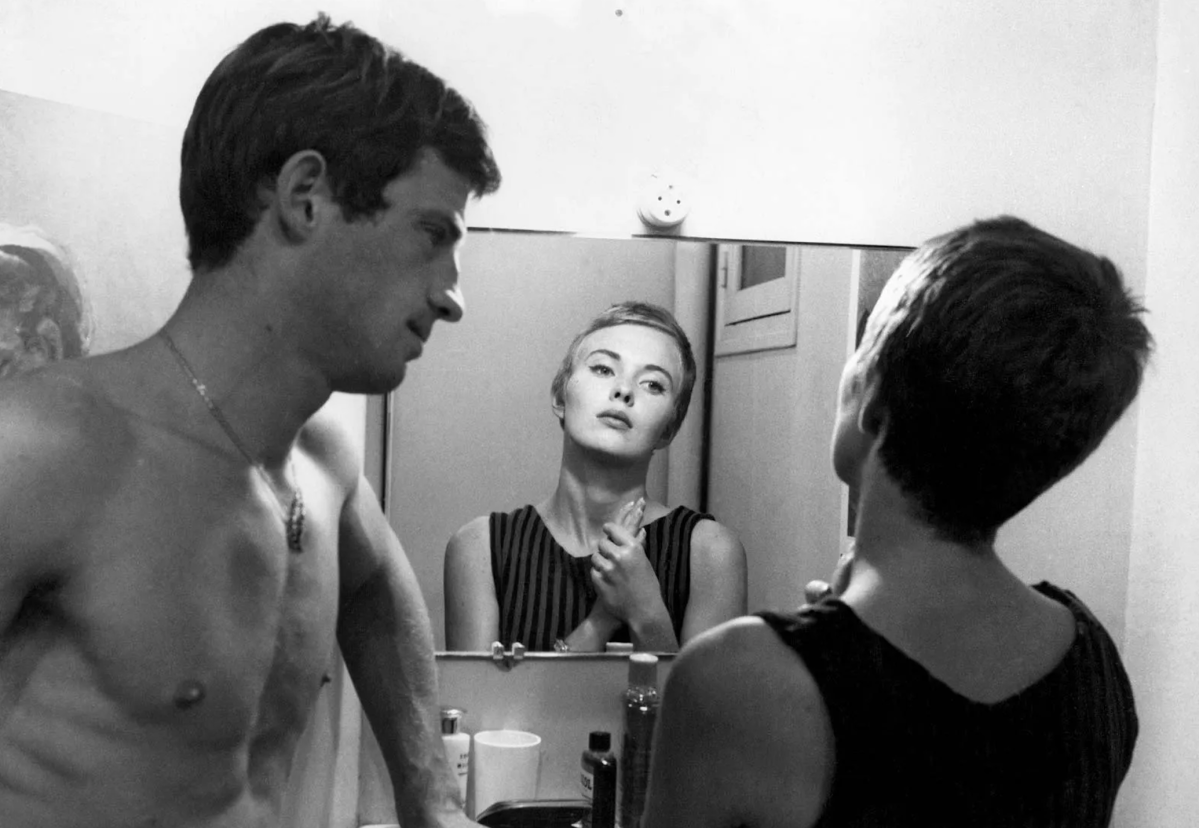Tributes have flowed following the passing of iconic filmmaker Jean-Luc Godard, who died this week at the age of 91, reportedly by assisted suicide in Switzerland.
A true pioneer of cinema, Godard represents the the advent and proliferation of the 1960s French New Wave – the art film movement that emerged in the late 1950s and challenged traditional notions of filmmaking.
One sentiment that appears time and again in tributes to Godard’s memory is that he forever ‘reinvented’ cinema. But what does that really mean? How did his work in the 1960s impact filmmaking practice, and how does that work continue to influence creators today?
Here are five lessons we can take from Godards career:
How to become a filmmaker
‘He who jumps into the void owes no explanation to those who stand and watch.’
Jean-Luc Godard
Throughout the 50s, Godard was a prominent contributor to the French magazine Cahiers du cinema, a publication dedicated to discussion, critique and analysation of film. Among his essays, controversial ideas of what filmmaking should and could be began to form.
In France, cinema was very much caught up in ‘traditional’ notions of filmmaking, and much funding was allotted to trustworthy names. Similarly, in the dominant US movie market, Hollywood was already a well-oiled, film-producing machine. A handful of major production studios were churning out an enormous number of pictures a year, musicals reigned supreme, and cost-cutting was rife.
A-movies and B-movies were packaged and sold together to cinemas, essentially forcing exhibitors to show all content, regardless of quality.
That’s not to say filmmakers weren’t creating exciting and impactful films during this time, but writers, directors and producers had to navigate a system based on stringent moral censorship, particularly in the US under the Hays Code, a set of self-imposed guidelines within filmmaking between 1934 and 1968, prohibiting what was seen as corrupt and/ or dangerous representations of violence, sex and profanity.
Godard had deeply absorbed and written about cinema for nearly a decade before he made a foray into filmmaking, at which point he jumped headlong into the void.
How to make your story feel real
‘The cinema is truth 24 frames-per-second.’
Jean-Luc Godard
A key part of this maxim, in Godard’s case, involved breaking the rules – including the rules of what had been considered, up until that point, ‘realistic cinema’.
How to create something from nothing (or at least, very little)
‘It’s not where you take things from — it’s where you take them to.’
Jean-Luc Godard
Many of the influences Godard drew from were plain to see, but the way he used and adapted those influences was nothing short of revolutionary. Political, genre, realist, documentary, even 3D, he took elements of cinema that already existed and remixed them in a way that created a new and enduring film grammar.
His philosophy, that cinema could and should be what people wanted it to be, paired with the use (as with other New Wave filmmakers) of lightweight cameras, made for a more nimble style of filmmaking and quite incredible examples of innovation.
How to use editing to tell a brand new story
‘A story should have a beginning, a middle and an end, but not necessarily in that order.’
Jean-Luc Godard
When Godard created his debut feature Breathless (1960) his use of the jump-cut was a revelation. The technique – in which a single, continuing shot is cut to increase pacing and make the action leap forwards – is commonplace now, not only in cinema but in literature and YouTube and TikTok videos. So much so, it feels it’s always been there as part of our storytelling. Likewise narratives that defy chronological norms.
Make it beautiful
Beauty is composed of an eternal, invariable element whose quantity is extremely difficult to determine, and a relative element which might be, either by turns or all at once, period, fashion, moral, passion.
Jean-Luc Godard
If the above quote seems a little impenetrable or vague, take a moment to revel in these visceral examples of breathtaking beauty from one of the greats of cinema.





